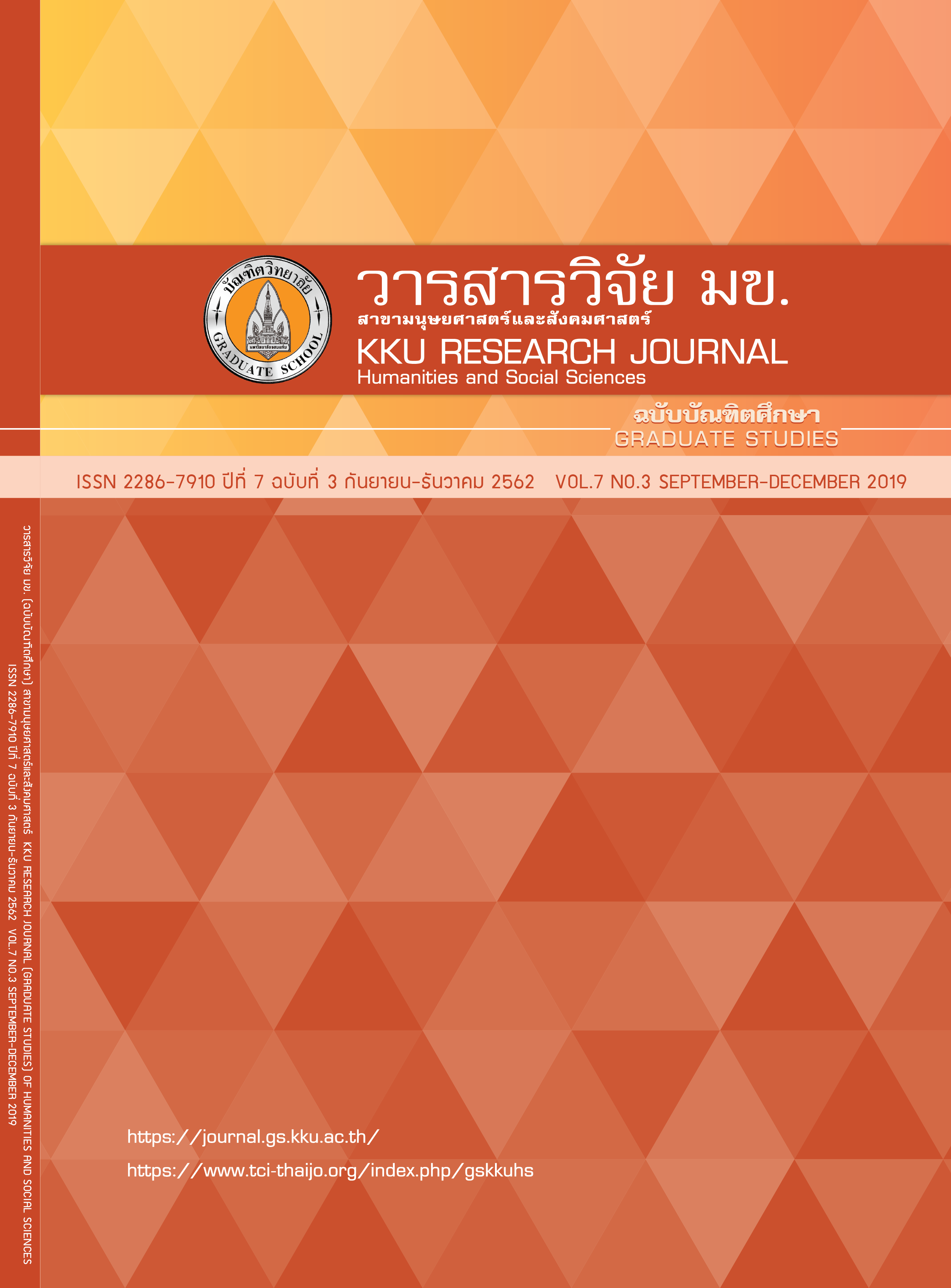The Development of Learning Activities According to the STEM Education to Promote Systems Thinking Skills of Students in Early Childhood Education
Keywords:
STEM Education, Systems thinking skills, Students in Early Childhood EducationAbstract
This research aimed to1) design instructional model by using STEM Education, 2) compare students’ system thinking skill before and after attending activities, 3) develop students’ skill about activity design and integrated innovation activity by using STEM Education and 4) evaluate students’ satisfaction to ward satten ding activities. The samples applying cluster random sampling (using classroom as a sampling unit) consisted of 23 persons who are the third-year undergraduate students, majoring in Early Childhood at the Faculty of Education, Phetchabun Rajabhat University, in academic year 2018, second semester. The mean, standard deviation, and t–test dependent samples were applied to analyze the data.
The finding of this research revealed as follows: 1) design and evaluate the instructional model by using STEM Education has 9 steps and this model was in the high level (=4.16), 2)the participants’ system thinking skill posttest was higher than pre test at the .05 level of statistical significance, 3) the participants were able to design activity and integrated innovation activity by using STEM Education as well and 4) the participants’ satisfaction toward attending activities was at the high level (=4.24).
References
Planning Division. Phetchabun Rajabhat University.
2. Chulavatnatol M. STEM Education Thailand and STEM Ambassadors. Journal Institute
for the Promotion of Teaching Science and Technology (IPST). 2013; 42(185): 14-18.
3. Kongsano S, Stem Education. Secretariat of the House of Representatives
Academic Focus June. 2016.
4. Chidmongkol S, Systems Thinking: Teaching Experiences for Improving Systems
Thinking. 2017; 45(2): 209-224.
5. Wangsrikoon A. Thailand Education in the 21st Century: Productivity and guideline
development. Journal humanities and Social Sciences. 2014; 8(1): 1-17.
6. Samahito C. STEM Learning Experience Provision in Early Childhood Education.
Kasetsart Educational Review. 2015; 30(2): 102-111.
7. Klomim K. Learning Management Based On Stem Education For Student Teachers.
Journal of Education Naresuan University. 2016; 18(4): 334-348.
8. Piyanat P. Systemic Thinking. Editor A project for enhancing learning for the happy
community. Bangkok; 2005. p.105.
9. Office of the Education Council (ONEC). "Will reform Thai education To keep up with
the world in the 21st century". Bangkok; 2016. p.203.
10. Saechin T. The development of learning activities based on constructionism theory
to develop programming skills using app inventor for high school students. [MSc thesis].
Naresuan: Naresuan University; 2013.Thai.
11. Kimanuwat N, The development of Instructional model to enhance system thinking
process for secondary school students. [MSc thesis]. Burapa: Burapa university; 2016.Thai.
12. Besa N. Effects of STEM Education Approach on Biology Achievement, Problem Solving
Ability and Instructional Satisfaction of Grade 11 Students. [MSc thesis]. Songkla: Songkla
University; 2015.Thai.
13. STEM Education Thailand [Internet] 2014. from: http://www.stemedthailand.org/?
page_id=23



